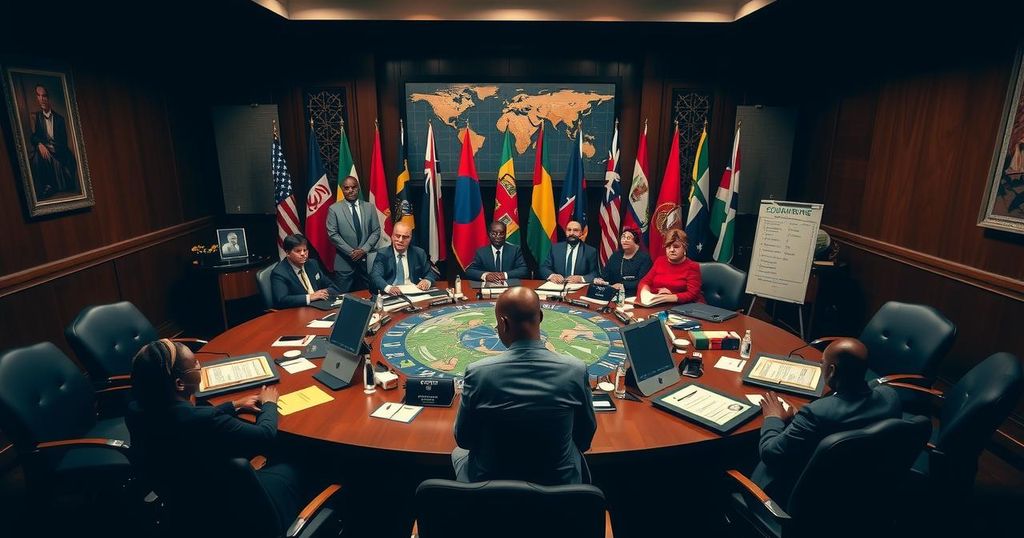Commonwealth Nations Convene to Address Climate Change and Slavery Reparations

The Commonwealth Heads of Government Meeting in Samoa addresses urgent topics such as climate change and reparations for slavery. Leaders from 56 nations discuss the impact of climate change, particularly on vulnerable island nations, while the topic of reparations gains momentum among Caribbean and African nations seeking justice for historical injustices.
The Commonwealth Heads of Government Meeting (CHOGM) commenced in Samoa with leaders from 56 member nations gathering to address pressing global issues such as climate change and reparations for slavery. Among the attendees, British King Charles is present as discussions unfold regarding the repercussions of historical injustices and climate-related challenges, particularly affecting small island nations vulnerable to rising sea levels. At the summit, which saw foreign ministers convene for discussions, the potential impact of climate change on Commonwealth nations is at the forefront of the dialogue. The United Nations Secretary-General, Antonio Guterres, has highlighted that ocean temperatures in the Pacific Islands are increasing at three times the global average, putting local populations at significant risk. Australian Foreign Minister Penny Wong emphasized that climate change represents an existential threat and the primary national security concern for Pacific nations. Furthermore, the topic of reparations for the transatlantic slave trade emerged as a significant issue, particularly from Caribbean countries and the African Union. Although British Prime Minister Kier Starmer indicated that the UK would not formally address reparations at the summit, he expressed openness for dialogue with leaders on the matter. In this context, the Caribbean Community (CARICOM) has initiated steps to seek reparations from former colonial powers, a process that remains contentious. Advocates for reparations argue that the historical injustices of slavery continue to yield pervasive racial inequalities, while opponents maintain that modern nations should not be accountable for past wrongs. The leaders from island nations are expected to issue a declaration focused on ocean protection, emphasizing that climate change is a vital issue necessitating immediate attention.
The Commonwealth is an organization comprised of countries with historical ties to the British Empire. With discussions focusing on climate change and reparations for the transatlantic slave trade, the summit in Samoa serves as a crucial platform for dialogue on these urgent issues impacting the member states. Many Commonwealth nations, particularly small island states, are grappling with the consequences of climate change, prompting calls for global action and support. Furthermore, the discourse on reparations highlights an ongoing struggle for justice against the legacy of slavery, as affected nations seek acknowledgment and compensation for historical grievances.
In sum, the Commonwealth Heads of Government Meeting in Samoa provides a pivotal opportunity for leaders to engage in critical discussions surrounding climate change and the legacy of slavery. With a significant emphasis on ocean protection and reparations, the outcomes of these talks may shape future policies and foster international cooperation in addressing both environmental and social injustices. The contrasting perspectives on reparations underline the complexity and sensitivity of historical issues and their contemporary implications.
Original Source: www.voanews.com






